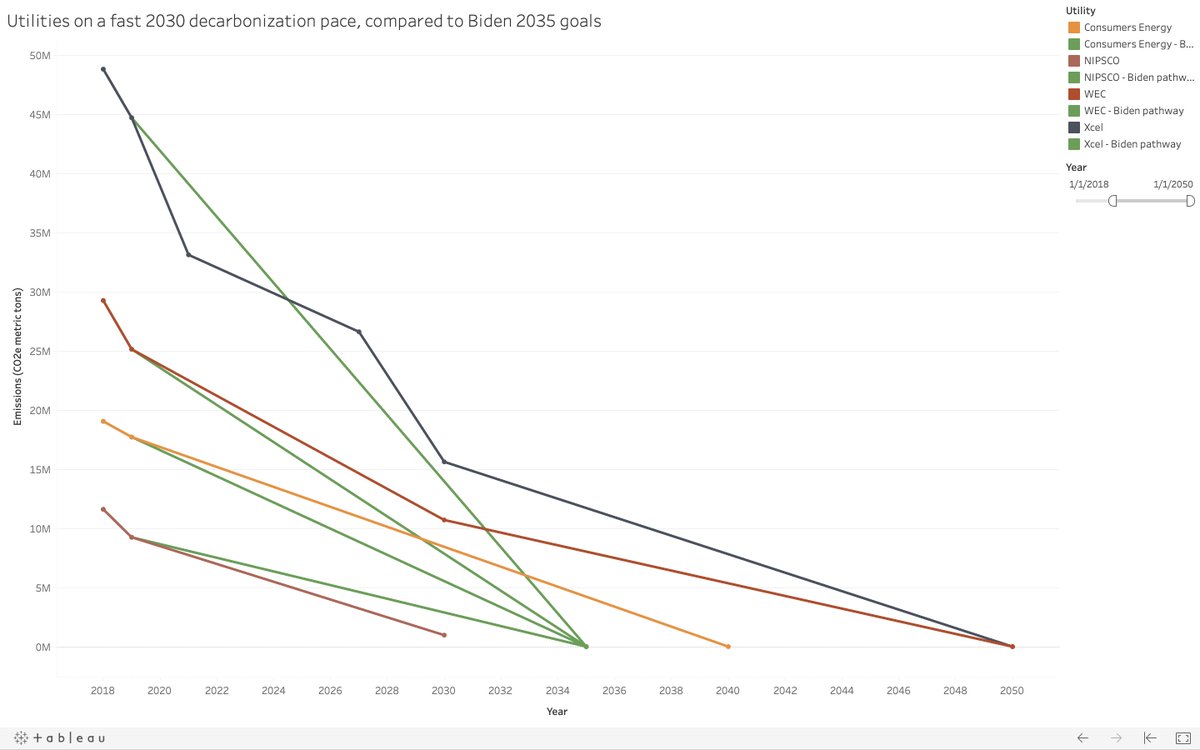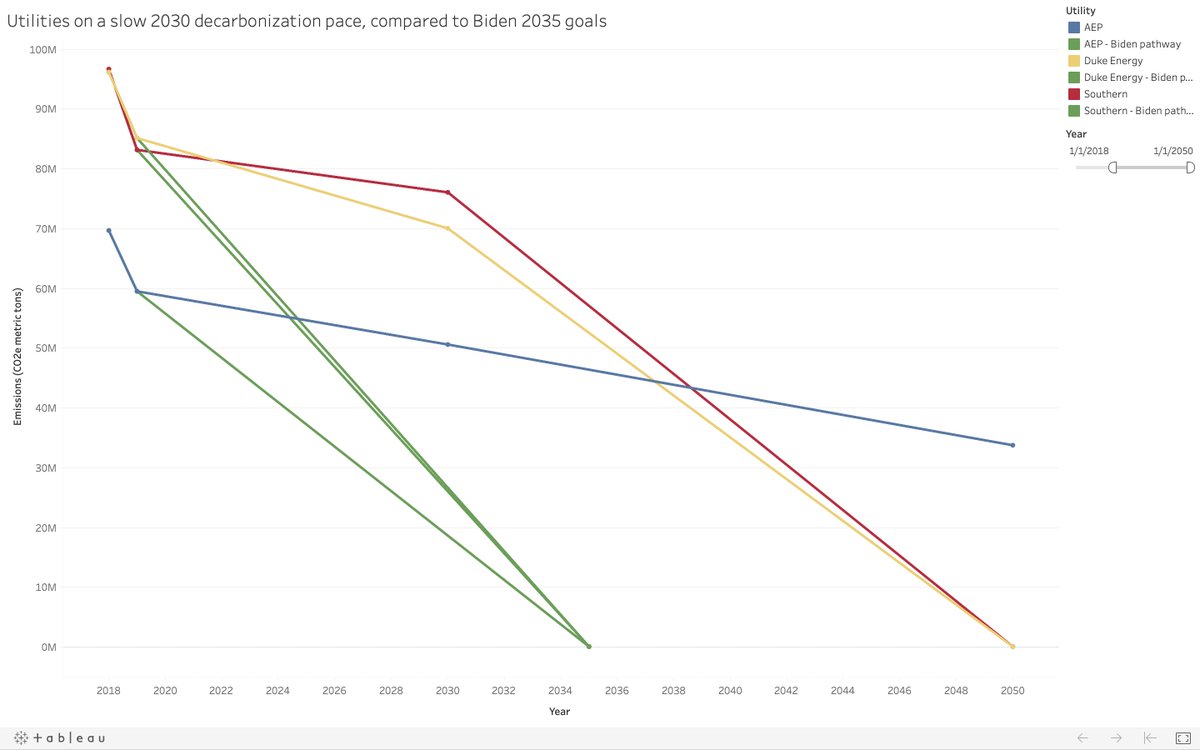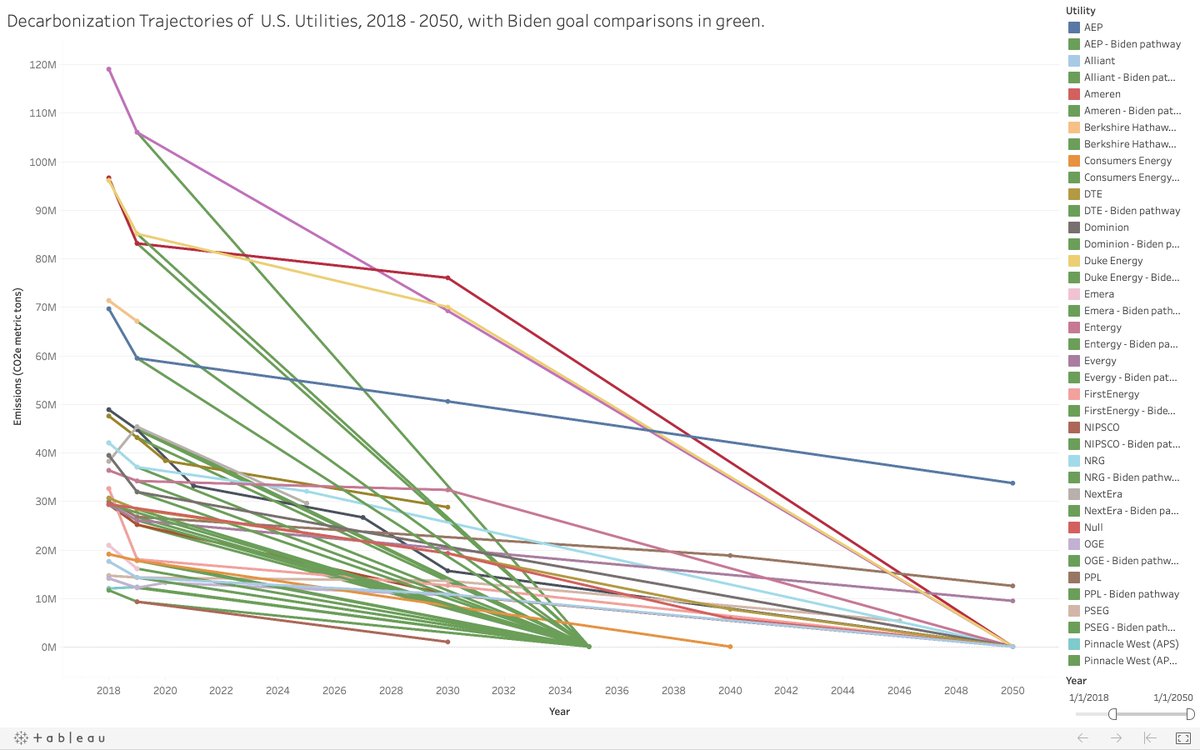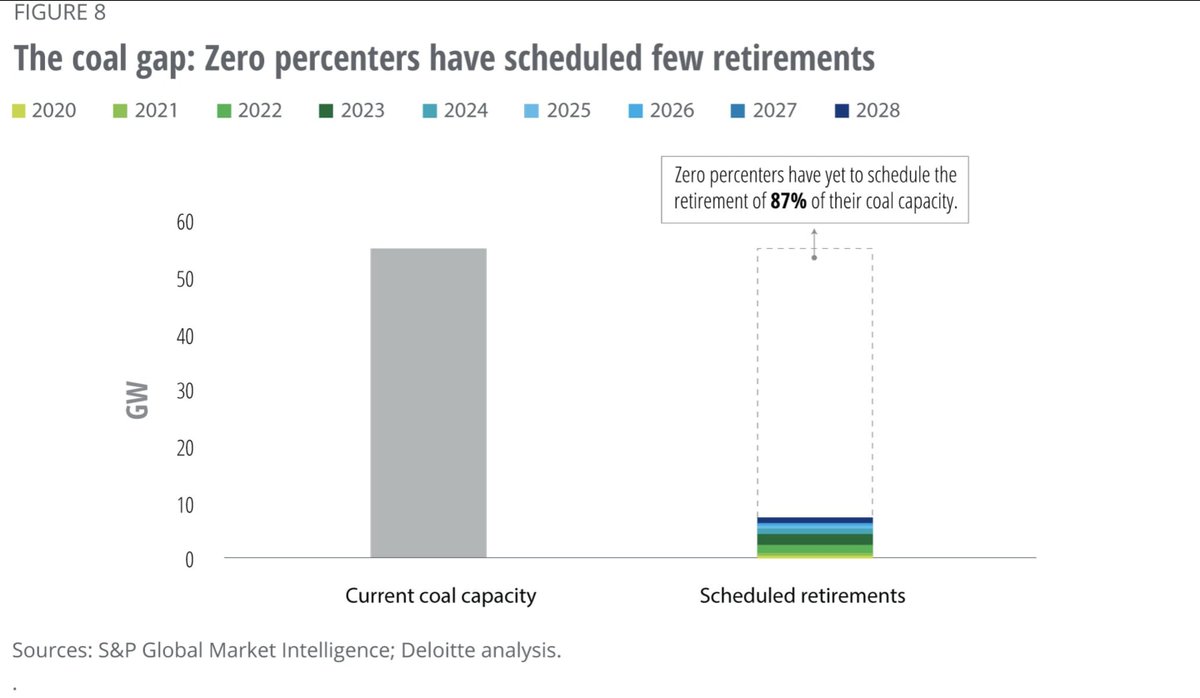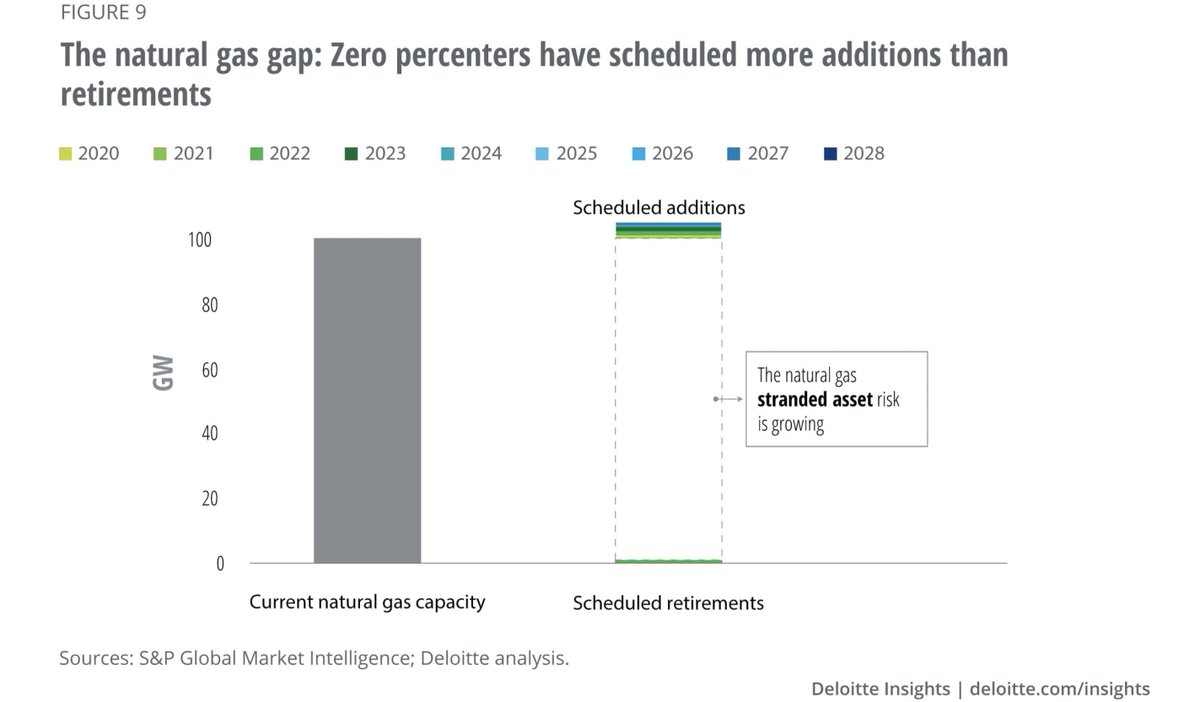NEW: Utilities have committed to a flurry of net-zero carbon goals. But which are actually decarbonizing quickly and which are stalling? Are any on pace to meet President-elect Biden’s goal of zero-carbon electricity by 2035?
We dug in! Thread... https://www.energyandpolicy.org/utilities-carbon-goal-biden-climate-plan/
We dug in! Thread... https://www.energyandpolicy.org/utilities-carbon-goal-biden-climate-plan/
First, some background: Why all the net-zero goals? Utilities are responding to pressure from investors who see carbon as a risk, and low-cost clean energy as an opportunity. Many of the country’s biggest utilities have set goals of reducing their carbon pollution to “net-zero.”
Those goals are good, at least on the surface! Climate action depends on having clean electricity to power almost everything. Doing that means America’s electric utilities have to stop emitting carbon. The sooner, the better.
Speed is key, which is why we focused on utilities’ *2030* goals, not 2050. For carbon, the area under the curve matters. Two decarbonization pathways with the same end date can lead to very different emissions totals! Plus, by 2050, current CEOs will have long-since retired.
A few utilities are moving quickly! NIPSCO, Xcel Energy, WEC and Consumers Energy have pledged to decarbonize at a pace to 2030 that is roughly in line with what would be required to hit Biden’s 2035 net-zero goal. [Green lines are hypothetical Biden trajectories.]
Those companies aren't pledging to be zero-carbon by 2035, as Biden is proposing. But they’re moving at a quick enough pace during this crucial decade to put themselves in the ballpark. You can see that at least to 2030, their trajectories aren't far off from the Biden pathways.
And now for the very bad news: Most others, including the largest emitters - Southern Co, Duke Energy and AEP - are all moving woefully too slowly. Here are their decarbonization pathways compared to what would be required to hit the Biden goal (green lines).
GIFs make everything better. Here's one showing how far off Southern is from a Biden goal-aligned decarbonization pathway.
Here's Duke compared to a Biden goal-aligned decarbonization pathway.
And AEP, same comparison.
Utilities and their trade association will tell Congress and the Biden Admin that they’re decarbonizing voluntarily, and policy action isn’t necessary. The plans from Southern, Duke and AEP and most others show that this isn’t true, at least on the timeframe that matters.
Other aspects of the utilities’ goals vary too, like the “net” in net-zero. Southern, Duke, and others are signaling that they will rely significantly on carbon offsets. Whether offsets ever make sense for other sectors, they don’t for utilities, which can and must decarbonize.
And utilities are all over the map in terms of how much of the carbon associated with the electricity they sell to customers actually counts under their goal. AEP gives itself an especially egregious loophole.
AEP is the largest equity holder of OVEC, a consortium of utilities that exists solely to own two 1950s-era coal plants in OH and IN. But AEP's choosing not to count the OVEC plants under its goal, because OVEC is technically a separate company. (Even though AEP owns OVEC!)
That’s a convenient little sleight of hand, since AEP has consistently lobbied for subsidies for the uneconomic OVEC coal plants, as @cleantechfacts has shown. If the company counted the plants’ emissions, maybe it would feel more compelled to close them! https://www.energyandpolicy.org/aep-campaign-contributions-hb-6/
For the slowpoke utilities (e.g. most of them), there are two main problems. They’re not shutting their coal plants quickly enough, and they’re building new gas plants, locking in carbon pollution. Even planned fast-movers like Xcel are failing on both counts in some places.
We're not the only ones to identify these "gaps" between utilities' net-zero commitments and their actual investment and retirement plans for gas and coal. Deloitte did a whole report on it! https://www2.deloitte.com/us/en/insights/industry/power-and-utilities/utility-decarbonization-strategies.html
The plans from utilities like NIPSCO prove that rapid coal retirements + skipping gas = fast decarbonization. NIPSCO says its plan is also the least-cost for consumers, a win-win! All utilities can follow suit, and the investors driving this trend should push for no less.
Utilities who pursue that rapid clean transition will not only reduce risks and maximize opportunities from decarbonization, but also leave themselves best aligned with the goals of the incoming Administration.
Read the report at https://www.energyandpolicy.org/utilities-carbon-goal-biden-climate-plan/, via @Matt_Kasper and @DavidPomerantz
And check out the graphs here: https://public.tableau.com/profile/david.pomerantz#!/vizhome/UtilityCarbonTargetsJune2019/DecarbonizationTrajectoriesofU_S_Utilities.
And check out the graphs here: https://public.tableau.com/profile/david.pomerantz#!/vizhome/UtilityCarbonTargetsJune2019/DecarbonizationTrajectoriesofU_S_Utilities.

 Read on Twitter
Read on Twitter![A few utilities are moving quickly! NIPSCO, Xcel Energy, WEC and Consumers Energy have pledged to decarbonize at a pace to 2030 that is roughly in line with what would be required to hit Biden’s 2035 net-zero goal. [Green lines are hypothetical Biden trajectories.] A few utilities are moving quickly! NIPSCO, Xcel Energy, WEC and Consumers Energy have pledged to decarbonize at a pace to 2030 that is roughly in line with what would be required to hit Biden’s 2035 net-zero goal. [Green lines are hypothetical Biden trajectories.]](https://pbs.twimg.com/media/EoPLZgwVkAIHacM.jpg)
